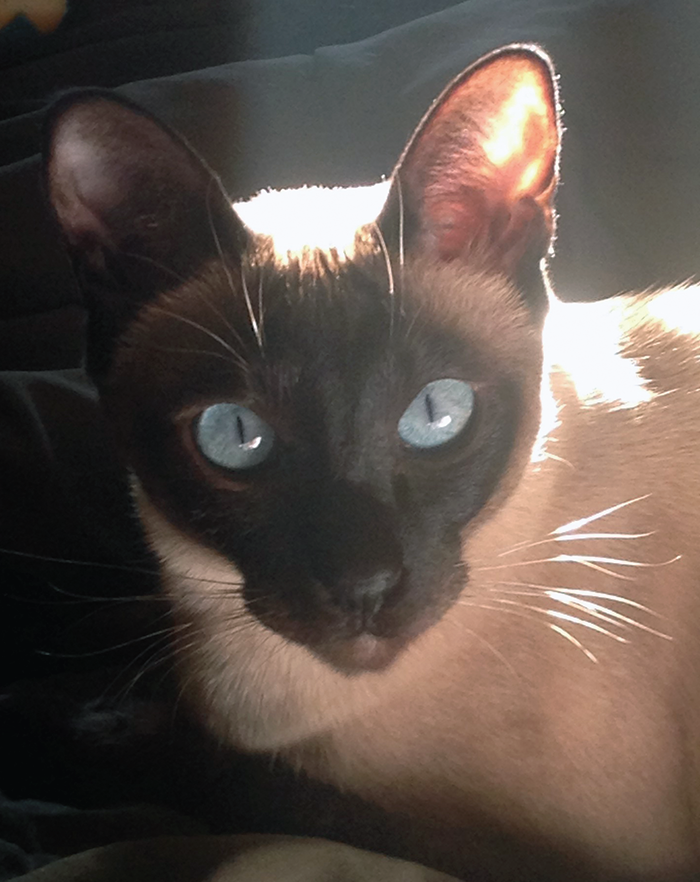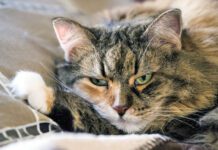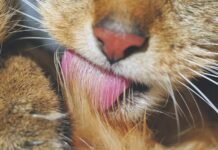Q. My son’s 11-year-old Seal Point Siamese cat, Blue, was diagnosed with irritable bowel disease (IBD) in 2018. Her treatment with steroids and metronidazole went well for several years, but she has recently developed diarrhea again. Our veterinarian told us that she has probably gotten used to the dosage and we should see how it plays out. We are very concerned and wondering whether it is common for this type of relapse to occur in cats with IBD.
A. Thanks for getting in touch, and I understand your concerns for Blue completely. IBD is a common disease of cats, and its management can be challenging in some cases. Perhaps a review of what we know about IBD with respect to mechanisms, diagnosis, and treatment is a helpful place to start.
IBD is a condition in which portions of a cat’s gastrointestinal (GI) tract become chronically inflamed, resulting in a decreased ability to digest and absorb nutrients. The cause of this inflammation is the subject of ongoing research, but available evidence suggests that it is the result of a complex interplay between an affected cat’s diet, immune system, GI bacterial populations, and perhaps environmental factors. While IBD can be diagnosed in cats of any age, it is most commonly diagnosed in middle-aged to older cats.
The definitive diagnosis of IBD requires biopsies of the affected portions of the GI tract, obtained either via endoscopy (passage of a small flexible camera into the GI tract) or abdominal surgery. Both require general anesthesia, so in many cases, veterinarians will treat presumptively for IBD and monitor response before recommending biopsies to avoid the added (but usually manageable) risk of general anesthesia.
The primary disease that feline IBD must be distinguished from is small cell lymphoma (SCL), a type of cancer of the GI tract. Cats with IBD and SCL often have similar symptoms (diarrhea, vomiting, anorexia, lethargy, weight loss) and, while the treatment of these two diseases is often quite similar, cats with SCL generally have shorter survival times than those diagnosed with IBD.
The treatment of IBD usually involves a combination of dietary modification such as a novel protein source or hydrolyzed diet (to remove protein components of the diet that may be stimulating the immune system of the GI tract to mount an allergic inflammatory response) combined with drugs that suppress the immune response, which include steroids, metronidazole, and, in severe cases, some chemotherapy drugs.
Supplementation with B vitamins, which may not be absorbed properly in cats with IBD, is often recommended. The effectiveness of probiotics and prebiotics in the treatment of IBD is controversial, although neither is likely harmful.
Cases of feline IBD that are non-responsive to more standard therapies may benefit from fecal transplantation (FT), a procedure in which feces from a healthy cat are transplanted in the GI tract of an affected cat in an effort to repopulate the GI tract with “beneficial” bacteria. FT requires either heavy sedation or general anesthesia.
It is not uncommon for cases of IBD to wax and wane over time, and therapies are adjusted on an individualized basis to minimize the use of steroids and other immunosuppressive drugs to the lowest dose that controls symptoms, given their potential side-effects.
I hope that this is useful, and please continue to work carefully with your veterinarian to ensure the best care for Blue. While I understand that managing feline IBD can be frustrating at times, cats with IBD can live high quality lives for long periods of time if managed appropriately.
Best of luck, and please send us an update when you can.




